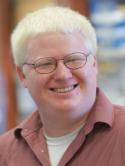In vivo models of subclonal oncogenesis and dependency in hematopoietic malignancy Journal Article
| Authors: | Bowman, R. L.; Dunbar, A. J.; Mishra, T.; Xiao, W.; Waarts, M. R.; Maestre, I. F.; Eisman, S. E.; Cai, L.; Mowla, S.; Shah, N.; Youn, A.; Bennett, L.; Fontenard, S.; Gounder, S.; Gandhi, A.; Bowman, M.; O'Connor, K.; Zaroogian, Z.; Sánchez-Vela, P.; Martinez Benitez, A. R.; Werewski, M.; Park, Y.; Csete, I. S.; Krishnan, A.; Lee, D.; Boorady, N.; Potts, C. R.; Jenkins, M. T.; Cai, S. F.; Carroll, M. P.; Meyer, S. E.; Miles, L. A.; Ferrell, P. B. Jr; Trowbridge, J. J.; Levine, R. L. |
| Article Title: | In vivo models of subclonal oncogenesis and dependency in hematopoietic malignancy |
| Abstract: | Cancer evolution is a multifaceted process leading to dysregulation of cellular expansion and differentiation through somatic mutations and epigenetic dysfunction. Clonal expansion and evolution is driven by cell-intrinsic and -extrinsic selective pressures, which can be captured with increasing resolution by single-cell and bulk DNA sequencing. Despite the extensive genomic alterations revealed in profiling studies, there remain limited experimental systems to model and perturb evolutionary processes. Here, we integrate multi-recombinase tools for reversible, sequential mutagenesis from premalignancy to leukemia. We demonstrate that inducible Flt3 mutations differentially cooperate with Dnmt3a, Idh2, and Npm1 mutant alleles, and that changing the order of mutations influences cellular and transcriptional landscapes. We next use a generalizable, reversible approach to demonstrate that mutation reversion results in rapid leukemic regression with distinct differentiation patterns depending upon co-occurring mutations. These studies provide a path to experimentally model sequential mutagenesis, investigate mechanisms of transformation and probe oncogenic dependency in disease evolution. © 2024 Elsevier Inc. |
| Keywords: | controlled study; leukemia; somatic mutation; genetics; mutation; nonhuman; animal cell; mouse; animal; metabolism; animals; mice; allele; nuclear protein; animal experiment; animal model; relapse; in vivo study; pathology; transplantation; carcinogenesis; cell transformation, neoplastic; nuclear proteins; oncogene; hematologic neoplasms; cancer cell; immunophenotyping; flt3 ligand; mutagenesis; dna (cytosine 5) methyltransferase; hematologic disease; isocitrate dehydrogenase; oncogene dependency; dna methyltransferase 3a; cd135 antigen; nucleophosmin; clonal evolution; fms-like tyrosine kinase 3; isocitrate dehydrogenase 2; licence; humans; human; article; genetically engineered mouse models; hematopoietic system malignancy; dna (cytosine-5-)-methyltransferases; neoplastic cell transformation; dnmt3a protein, mouse; npm1 protein, human; dnmt3a protein, human; sequential mutagenesis; flt3 protein, mouse; npm1 protein, mouse |
| Journal Title: | Cancer Cell |
| Volume: | 42 |
| Issue: | 11 |
| ISSN: | 1535-6108 |
| Publisher: | Cell Press |
| Date Published: | 2024-11-11 |
| Start Page: | 1955 |
| End Page: | 1969.e7 |
| Language: | English |
| DOI: | 10.1016/j.ccell.2024.10.009 |
| PUBMED: | 39532065 |
| PROVIDER: | scopus |
| PMCID: | PMC11561369 |
| DOI/URL: | |
| Notes: | PDF misspells Matthew Wereski last name -- The MSK Cancer Center Support Grant (P30 CA008748) is acknowledge in the PDF -- Corresponding authors is MSK author: Ross L. Levine -- Source: Scopus |
Altmetric
Citation Impact
BMJ Impact Analytics
MSK Authors
Related MSK Work


















